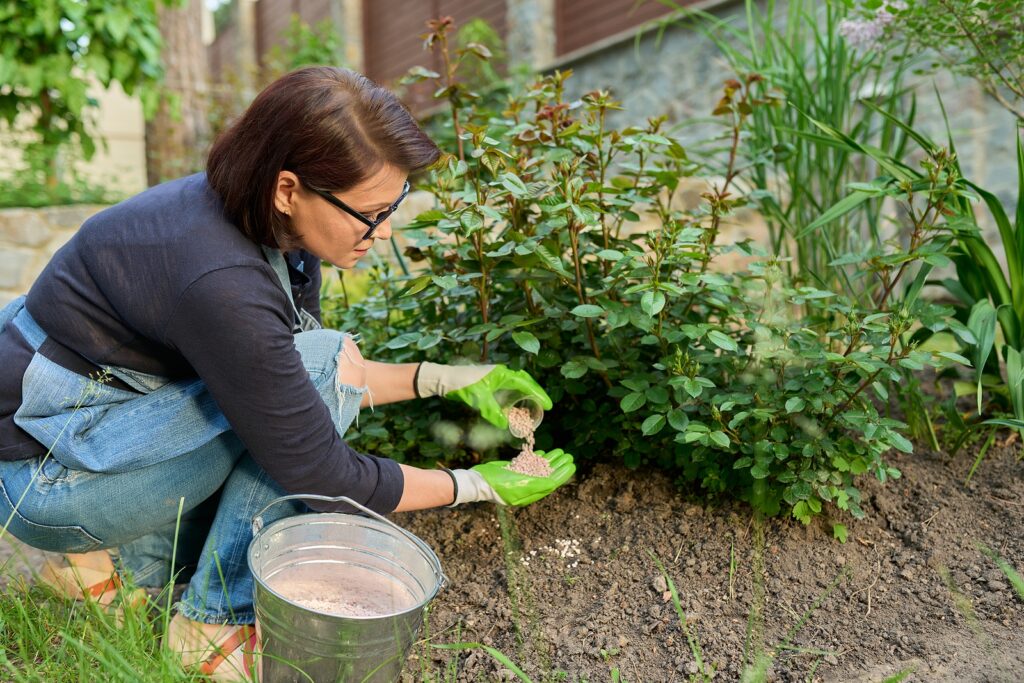On our blog, we routinely spotlight the economic and ecological benefits of bats. Bats are important to our society, and their dung is just another reason why we benefit from their local populations. Bat droppings, also known as guano, have been used as a fertilizer for many centuries and continues to be used today for crops and gardens all across the world.
Continue reading to learn more about back guano fertilizer, including why it’s beneficial and how it is used.

Benefits of Bat Guano Fertilizer
The use of back guano dates back thousands of years. One historical use for back guano is fertilization. Bat guano happens to make an excellent fertilizer for many reasons, namely because it adds a high concentration of nutrients to plants, including nitrogen (N), phosphorus (P), and potassium (K). These essential nutrients support faster, greener, plant growth, plus helps with root and flower development. The ingredients inside bat droppings are beneficial overall to plant health.
Using bat droppings as a means to fertilize soil is beneficial because it promotes soil enrichment. Not only does bat guano fertilizer condition the soil, thus improving drainage and texture, but it also works as a fungicide and retains the natural ability to manage roundworm outbreaks. In addition to fertilizing, back guano can also be used to speed up the composting process. It is an effective compost activator because it helps increase the rate of decomposition.
Bat Guano Application Options
There are two main methods of using bat guano as a fertilizer. The first method is topical incorporation. This involves mixing the bat guano into the soil as a top dressing. The second method is to turn the fertilizer into liquid form, which is known as bat guano tea, and incorporate it into your routine watering process. To make bat guano tea, steep dried or fresh bat guano in hot water overnight. Strain in the morning, and then apply to your plants generously.
How to Get Rid of Nuisance Bats
Although we love bats, they are not great house guests. If bats are coming to close to your property, consider implementing some abatement strategies. Most states have laws against harming and trapping bats since bats are vital parts of the Eco-system. Furthermore, bats can be dangerous because they are known carriers of several infectious diseases. For these reasons and more, it is not safe to attempt bat removal on your own. You should hire a licensed Richmond VA bat removal and control company to provide these services for you.
You can also try to prevent bats from being attracted to your property. For instance, you can install ultrasonic wave devices, predatory sound machines, or motion-detected lighting outside. You can also use certain household spices and oils to create a homemade bat repellent. Spices like chili powder, cayenne pepper, black pepper, peppermint, menthol, ammonia, cloves, and eucalyptus are not welcome to bats. Add these to water and spray the perimeter of your home to thwart their curiosity.
Are you impressed with the uses of bat guano, but also dealing with a nuisance bat problem on your property? Contact Virginia Bat Pros at 804-729-9097 for safe and humane bat removal and control in Richmond, Virginia and its surrounding counties. We serve both residential and commercial clients the most competitive rates around.
Related Posts:
Interesting Facts About the Species We Call Bats
7 Things You Should Never Do If You Have Bats
4 Reasons Why You Should Never Ignore a Nuisance Bat Problem
